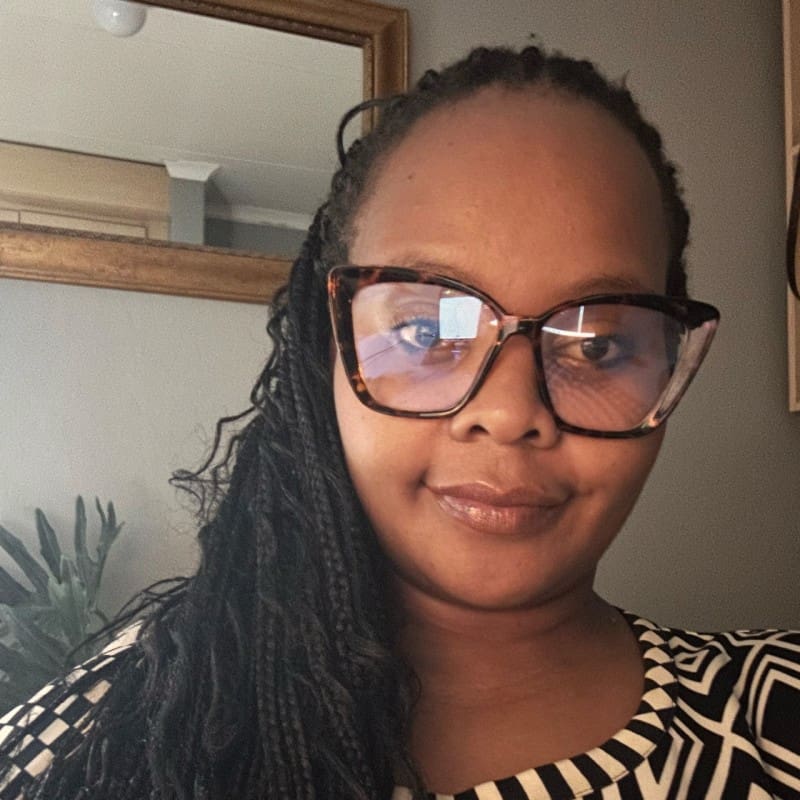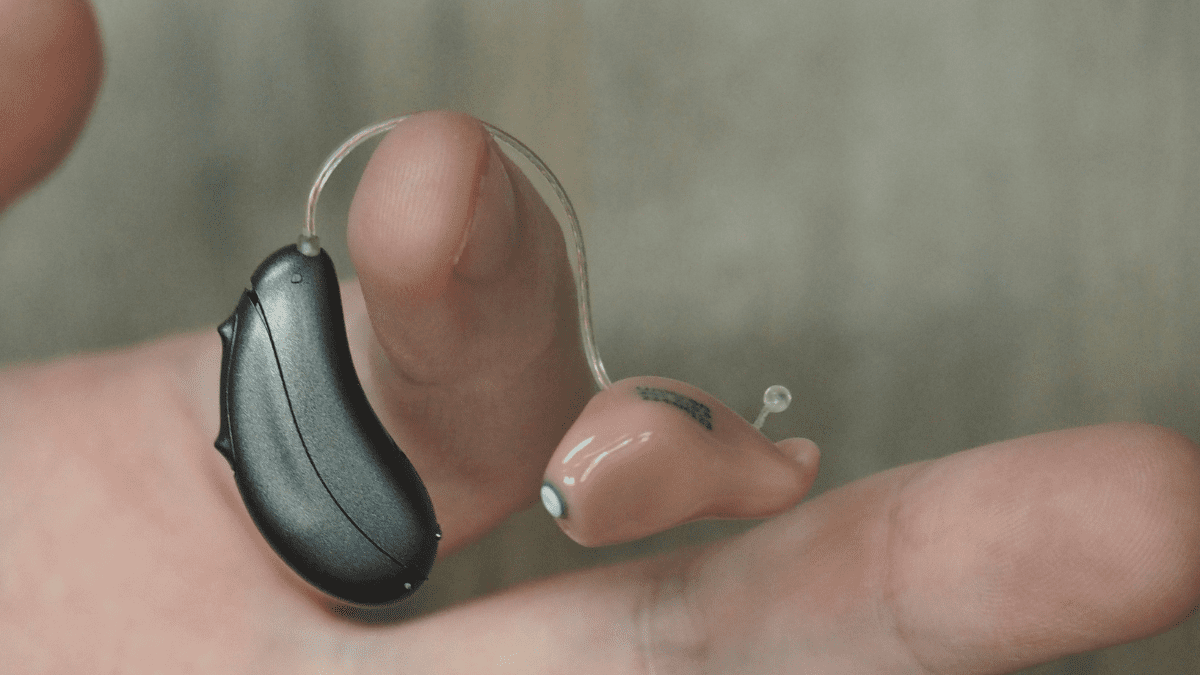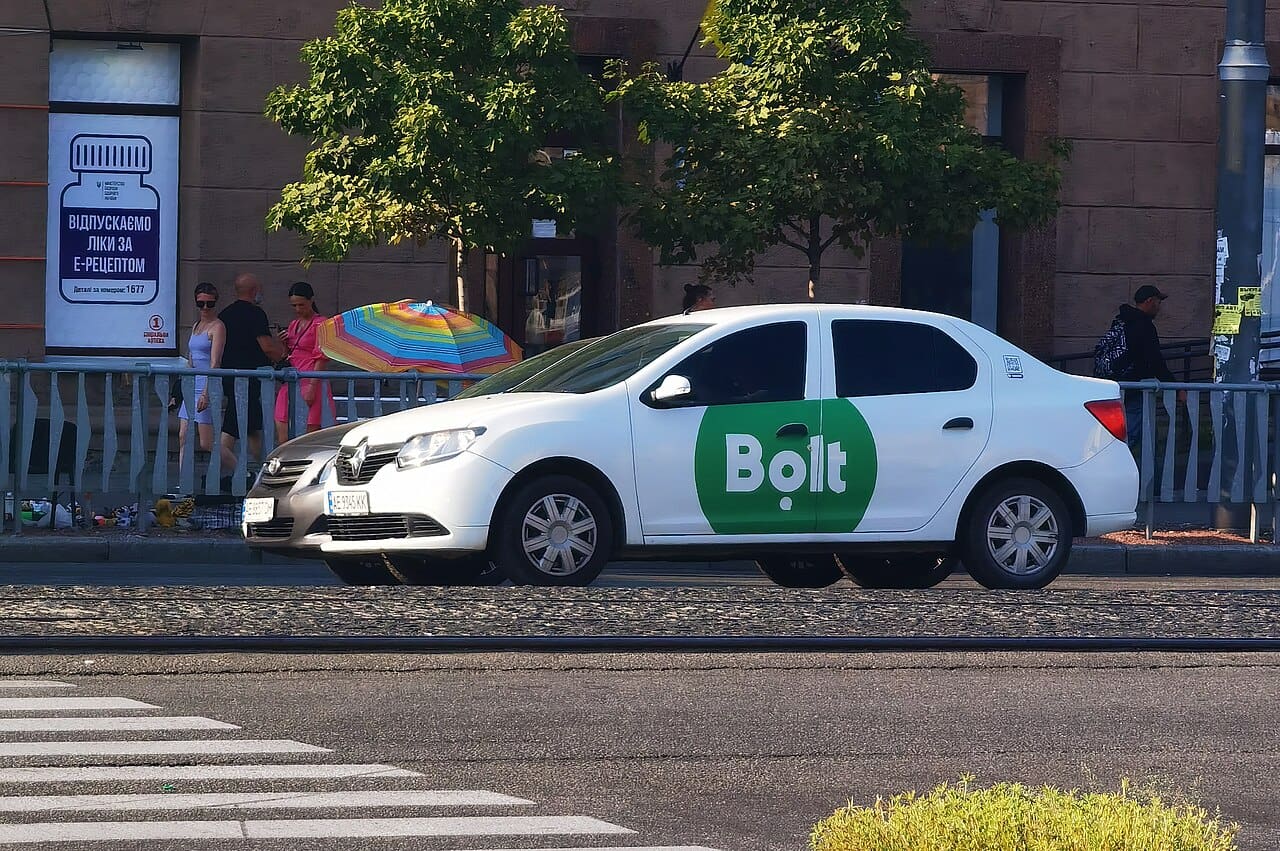- National education policy, which has been in place for over two decades, says we need to ensure educators have the training and skills to support kids with disabilities like hearing loss. But a 2024 study found teachers didn’t feel prepared to teach them.
- Karabo Keepile learned about that the hard way. While she informed her son’s new school about his hearing aid, one day a teacher yanked it out of his ear, mistaking it for an earbud.
- This isn’t just about her son, she writes. It’s about an education system that must do better for kids with disabilities.
By Karabo Keepile
My son, Nkosi, started high school this year. Like most grade eights, he was a mix of nervous and excited. Nervous about navigating a new environment, excited about growing up. But unlike most of his peers, Nkosi also had to carry something invisible: deafness in his right ear.
We discovered his hearing loss two years ago, when he was in grade six. A teacher had noticed that he often strained to hear, something I had also seen. When she confirmed it, I got him tested. The result was a shock, followed by relief. Even though the doctors couldn’t tell us exactly what caused it — though it might be linked with an injury when he was four — we finally understood why certain things weren’t making sense to him and we could finally do something about it.
He was fitted with hearing aids soon after and slowly, through courage and some hard days like wondering why me, and having to face uncomfortable whispers in corridors from his peers, he learned to wear them confidently, even when it made him stand out. His primary school handled it beautifully.
His grade six teacher used the moment to educate his classmates about what they were and instructed the class to bring them to her if they ever got lost. Within weeks, it became no big deal. Nkosi even proudly explained how his “device” worked and the questions eventually died down. Life went on.
But five months into his new school, everything changed.
During his final period, Nkosi followed class protocol and asked to go to the bathroom. As he reached for the hallway pass from his teacher’s table, she leaned over and, without warning or explanation, yanked his hearing aid out of his ear. She thought it was an earbud.
His classmates rushed to correct her, shouting, “It’s not earphones, it’s a hearing aid!” But the damage was done. The pain was instant. The humiliation was even worse.
A breakdown in communication
When I met with the principal and deputy principal a few days later, after writing a formal complaint, they admitted that the teachers had not yet gone through all the documentation submitted at the start of the year. That was where I clearly disclosed Nkosi’s disability. I had also told his tutor and class teacher during parents’ evening. But somewhere along the line, the information never reached all his educators.
Rightfully, the teacher was left to answer some uncomfortable questions about why she had yanked out the hearing aid. But in truth, she couldn’t take the full blame for not knowing about Nkosi’s deafness. Those are questions I would have expected the principal to answer, because ensuring teachers are properly trained and informed is a matter of school leadership, not just individual oversight. Training and systems should have been in place to prevent this from ever happening.
What made it even harder was the timing. This incident happened just days before Nkosi’s June exams. For any learner, exams bring stress. For a child who cannot fully hear, the stakes are even higher. Not being able to hear instructions or a teacher’s explanations in the build-up to assessments could easily have been the difference between a pass and a fail. His right to education wasn’t only interrupted in the moment, it was put at risk during one of the most important academic periods of the year.
If Nkosi’s needs could be overlooked in his first year at high school, how do I know this won’t happen again next year, with new teachers and movement into a new grade?
Thankfully, the audiologist was able to reprogramme his hearing aid. Nkosi can hear again. But the incident raised bigger questions. What about the child who doesn’t tell their parents when something happens? What about the family that can’t afford repairs, or even the device itself? What about the next teacher who assumes, grabs and in doing so damages not just a device but a child’s dignity?
This isn’t just about my son. It’s about an education system that must do better.
The bigger picture
According to a 2024 World Health Organisation (WHO) report on hearing and ear care in Africa, early-onset hearing loss, or hearing loss that develops in children, affects four in every 1,000 people in South Africa.
But when researchers conducted screenings of 10,390 children between the ages of four and seven between September 2017 and June 2019 in Khayelitsha and Mitchell’s Plain, they found hearing loss — ranging from mild (difficulty hearing soft or distant sounds) to profound (when someone perceives only loud sounds as vibrations) — affected 22 of every 1,000 preschoolers.
The causes of hearing loss are wide-ranging and sometimes difficult to pin down, which is the case with Nkosi.
Some hearing loss is genetic, or hereditary. But the WHO estimates that, globally, 60% of childhood hearing loss is preventable. About one in three childhood hearing losses is caused by untreated infections such as rubella (German measles), which can harm a baby’s growing ears, or meningitis, where germs can damage the tiny parts of a baby’s inner ear or the nerve that sends sound signals to the brain. Meanwhile, complications of early births (babies born before 37 weeks of pregnancy), such as infants with low birth weight, make up 17% of childhood hearing loss.
Often, children’s hearing also doesn’t get screened early enough to leave enough time to deal with the problem in time.
South Africa has made progress on helping children with hearing disabilities on paper.
- The education department’s 2001 white paper 6, “Building an inclusive education and training system”, says that regardless of disabilities, culture, language or learning differences, all kids should learn together in the same classroom. (In 2014, department policy underscored that special education schools should be a last option, and only for learners who need considerable support.) To achieve this, it says, teachers should have the training and help they need to not just identify what is blocking kids from learning but also know how to help.
Nkosi’s experience shows how far we still are from that promise. Policies can’t protect children if the people meant to uphold them aren’t equipped or supported to do so. His hearing aid should have been a simple part of classroom life, not a source of confusion and harm.
In a 2024 study published in the South African Journal of Childhood Education, researchers interviewed six teachers from two public schools in KwaZulu-Natal who practise “inclusive education” prescribed by the national policy, asking them to describe in their own words what it’s like to teach learners with hearing loss.
Educators in the study described struggling without the right training, assistive devices (such as visual aids or projectors or hearing aids) or support systems, leaving children with hearing problems struggling to keep up — often misunderstood, isolated and missing out on important information in classrooms.
Nkosi’s story isn’t an exception; it’s a reflection of a system that has not yet bridged the gap between policy and practice.
Why compassion and awareness matter
The truth is, no policy document can replace human compassion. What happened to Nkosi could have been avoided if there was greater awareness and sensitivity in the classroom. A simple pause before assuming. A habit of asking before acting. A willingness to treat every child with dignity.
For parents like me, disclosure is an act of trust. When we write down our children’s medical information on forms, when we meet with tutors and teachers, we are trusting that the system will protect our children, not fail them.
Nkosi is resilient. He has faced hard days before and has learned to carry himself with grace. But he shouldn’t have to. No child should have to prove their resilience just to access the education they deserve.
Because at the end of the day, this isn’t just about hearing aids. It’s about whether our schools truly hear and see our children.
This story was produced by the Bhekisisa Centre for Health Journalism. Sign up for the newsletter.


Karabo Keepile is a communications professional and founder of Narra Studios, a storytelling and content agency focused on authentic, human-centred narratives.



